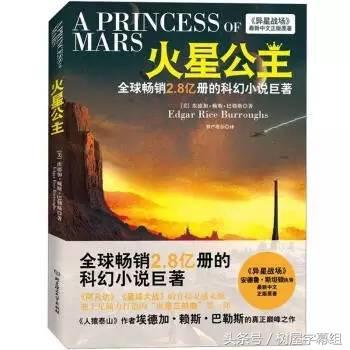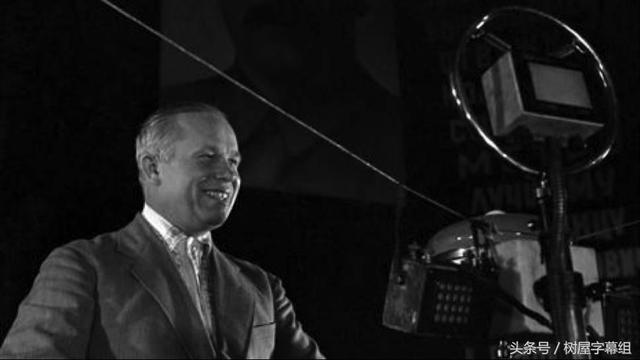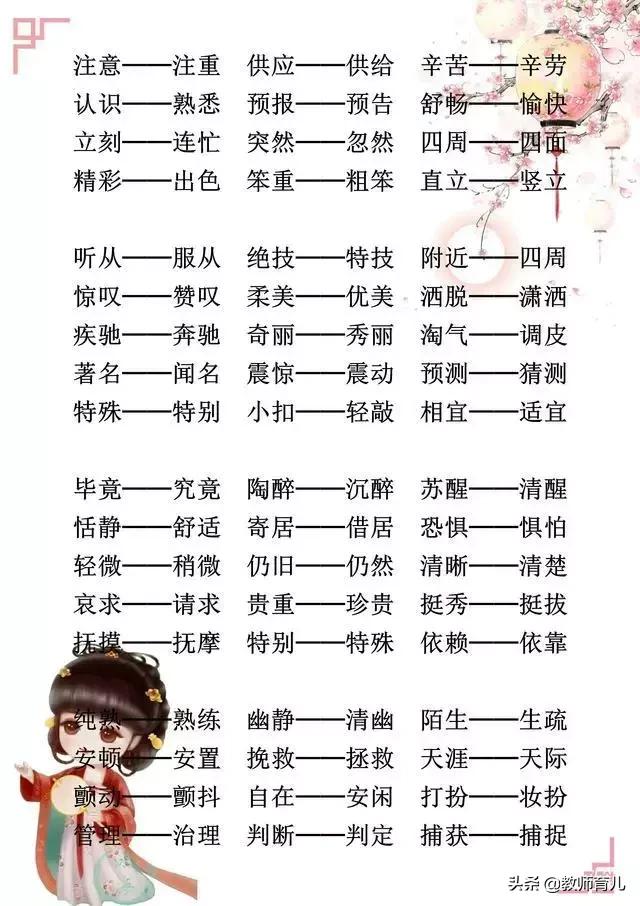英语传译笔记(英语文翻-杂志)
The greatest mistranslations ever
史上最大误译事件
By Fiona Macdonald
菲奥娜·麦克唐纳编辑
2 February 2015
二零一五年二月二日

After Google Translate’s latest update, BBC Culture finds history’s biggest language mistakes – including a US president stating ‘I desire the Poles carnally’.
谷歌翻译最近更新后,BBC文化栏目发掘出了历史上最大的翻译错误——包括美国总统的发言:“我在肉体上渴望波兰”。
Google Translate’s latest update – turning the app into a real-time interpreter – has been heralded as bringing us closer to ‘a world where language is no longer a barrier’. Despite glitches, it offers a glimpse of a future in which there are no linguistic misunderstandings – especially ones that change the course of history. BBC Culture looks back at the greatest mistranslations of the past, with a 19th-Century astronomer finding signs of intelligent life on Mars and a US president expressing sexual desire for an entire nation.
谷歌翻译的最新更新——将手机应用变为实时翻译器——作为能使“语言不再成为世界沟通的障碍”的神器被广而告之。且不看这款应用现存的一些小故障,它使我们瞥到了不存在语言不通造成误解——尤其是会改变历史进程的误解——的美好未来。BBC文化栏目回顾了历史上存在最大的翻译错误,包括20世纪一位天文学家在火星发现了智慧生命的痕迹以及美国总统向整个国家表达性趣的错误翻译。
Life on Mars
火星上的生命

乔凡尼·斯基亚帕雷利的地图于1888年出版——他把火星上的沟壑成为“运河”(科学图片库)
When Italian astronomer Giovanni Virginio Schiaparelli began mapping Mars in 1877, he inadvertently sparked an entire science-fiction oeuvre. The director of Milan’s Brera Observatory dubbed dark and light areas on the planet’s surface ‘seas’ and ‘continents’ – labelling what he thought were channels with the Italian word ‘canali’. Unfortunately, his peers translated that as ‘canals’, launching a theory that they had been created by intelligent lifeforms on Mars.
1877年,当意大利天文学家斯基帕雷利开始制作火星地图的时候,他无意间激发了整个科幻小说界的创作热潮。这位米兰布雷拉天文观测台的台长将火星表面的暗区和亮区命名为星球表面的“海洋”和“大陆”——还把他认为是海峡的位置命名为意大利文“canali’”。不幸的是,他的同事将其翻译成了“运河”,并由此建立了火星智慧生物开凿运河的理论。
Convinced that the canals were real, US astronomer Percival Lowell mapped hundreds of them between 1894 and 1895. Over the following two decades he published three books on Mars with illustrations showing what he thought were artificial structures built to carry water by a brilliant race of engineers. One writer influenced by Lowell’s theories published his own book about intelligent Martians. In The War of the Worlds, which first appeared in serialised form in 1897, H G Wells described an invasion of Earth by deadly Martians and spawned a sci-fi subgenre. A Princess of Mars, a novel by Edgar Rice Burroughs published in 1911, also features a dying Martian civilisation, using Schiaparelli’s names for features on the planet.


美国天文学家帕西瓦尔·罗威尔信以为真,1894年到1895年间他在火星地图上标注了上百条运河。之后二十年间,他发表了三本关于火星的书,上面的插图展示了他认为的用于运输水的人工建筑,他认为这些建筑是由具有工程师般头脑的睿智种族建造的。有一位作家也受到罗威尔理论的影响,出版了自己的作品来介绍聪慧的火星人。在1897年开始连载的《星际战争》里,赫伯特·乔治·威尔斯描述了致命危险的火星人入侵地球的故事,由此建立了科幻小说的新分支。埃德加·赖斯·巴勒斯1911年出版的《火星公主》里,也描述了即将没落的火星文明,还用斯基亚帕雷利的名字为火星的特色建筑命名。
While the water-carrying artificial trenches were a product of language and a feverish imagination, astronomers now agree that there aren’t any channels on the surface of Mars. According to Nasa, “The network of crisscrossing lines covering the surface of Mars was only a product of the human tendency to see patterns, even when patterns do not exist. When looking at a faint group of dark smudges, the eye tends to connect them with straight lines.”
当然,用于运水的人造运河只是语言翻译错误和狂热幻想的产物。现在天文学家们已经达成一致意见,认为火星表面没有运河存在。美国宇航局表示,“火星表面纵横交错的网络只是人类以图案方式理解物体的视力惯性造成的,实际这种图案可能并不存在。当看到一组模糊的深色污点时,眼睛会趋向于将它们连成一条直线。”
Pole position
波兰问题
Jimmy Carter knew how to get an audience to pay attention. In a speech given during the US President’s 1977 visit to Poland, he appeared to express sexual desire for the then-Communist country. Or that’s what his interpreter said, anyway. It turned out Carter had said he wanted to learn about the Polish people’s ‘desires for the future’.
吉米·卡特很清楚如何吸引观众的注意力。他于1977年担任美国总统期间访问波兰并发表演讲,并向这个当时的共产主义国家表达了性暗示。至少他的翻译官是这么说的。然而事实证明卡特说的是他想知道波兰人民“对未来的期望。”
Earning a place in history, his interpreter also turned “I left the United States this morning” into “I left the United States, never to return”;according to Time magazine, even the innocent statement that Carter was happy to be in Poland became the claim that “he was happy to grasp at Poland's private parts”.
据《时代》杂志介绍,他的翻译官在历史上也赢得了自己的一席之地,他将“我今天早晨离开了美国”这句话翻译成了“我离开了美国,再也不会回去了。”甚至还把卡特表示“很高兴来到波兰”的纯洁表述翻译成了“他很高兴能抓住波兰的私处。”
Unsurprisingly, the President used a different interpreter when he gave a toast at a state banquet later in the same trip – but his woes didn’t end there. After delivering his first line, Carter paused, to be met with silence. After another line, he was again followed by silence. The new interpreter, who couldn’t understand the President’s English, had decided his best policy was to keep quiet. By the time Carter’s trip ended, he had become the punchline for many a Polish joke.
毫无疑问,总统先生在这次访问随后举行的国宴中说祝酒词的时候换了一个翻译官——但是他的厄运还在继续。卡特讲完一句话后就停了下来,可是没有人翻译。他又讲了一句,还是一片寂静。这位新任翻译官听不懂总统说的英语,因此他认为最好的策略就是保持沉默。等卡特的波兰之行结束之后,他已经成了波兰街头巷尾的大笑话。

Nikita Khruschev, 1935 (Hulton Archive/ Getty Images)
尼基塔·赫鲁晓夫 1935年(盖帝图像)
Keep digging
继续深挖

Newspaper headlines in 1956
1956年的报纸头条
Google Translate might not have been able to prevent one error that turned down the temperature by several degrees during the Cold War. In 1956, Soviet premier Nikita Khrushchev was interpreted as saying “We will bury you” to Western ambassadors at a reception at the Polish embassy in Moscow. The phrase was plastered across magazine covers and newspaper headlines, further cooling relations between the Soviet Union and the West.
谷歌翻译可能无法阻止一个导致冷战期间各国氛围下降好几度的错误的产生。1956年,苏联主席尼基塔·赫鲁晓夫在波兰驻莫斯科大使馆招待会上对西方大使们的发言被翻译成了“我们会埋葬你们。”这一翻译当时被各大杂志报刊设为头条,将苏联与西方的关系再度冷却。
Yet when set in context, Khruschev’s words were closer to meaning “Whether you like it or not, history is on our side. We will dig you in”. He was stating that Communism would outlast capitalism, which would destroy itself from within, referring to a passage in Karl Marx’s Communist Manifesto that argued “What the bourgeoisie therefore produces, above all, are its own grave-diggers.” While not the most calming phrase he could have uttered, it was not the sabre-rattling threat that inflamed anti-Communists and raised the spectre of a nuclear attack in the minds of Americans.
然而实际上,赫鲁晓夫说的话结合语境翻译的话,意思更接近于“不论你们是否喜欢这种趋势,历史都是站在我们这边的。我们会埋葬你们的制度”。他想说明的是,共产主义终将战胜资本主义,资本主义制度会从内部瓦解,这段话源于卡尔·马克思《共产党宣言》里的论点“无论如何,资产阶级创造的,是他们自己的坟墓。”虽然他的遣词用句不是最能安抚人心的那种,但是也算不上是武力恫吓而点燃反共产主义热潮,但还是在美国人心中勾画出了核武器攻击的魔鬼形态。
Khruschev himself clarified his statement – although not for several years. “I once said ‘We will bury you’, and I got into trouble with it,” he said during a 1963 speech in Yugoslavia. “Of course we will not bury you with a shovel. Your own working class will bury you.”
赫鲁晓夫之后澄清了自己的发言——然而这都是若干年后的事情了。“我曾经说过“‘我们会埋葬你们’这样的话,然后就因此惹上了麻烦,” 他1963年在南斯拉夫发表演讲时说。“我们当然不会用铲子把你们埋起来。你们自己国家的工人阶级会埋葬你们的。”
Diplomatic immunity
外交免疫
Mistranslations during negotiations have often proven contentious. Confusion over the French word ‘demander’, meaning ‘to ask’, inflamed talks between Paris and Washington in 1830. After a secretary translated a message sent to the White House that began “le gouvernement français demande” as “the French government demands”, the US President took issue with what he perceived as a set of demands. Once the error was corrected, negotiations continued.
事实证明,谈判期间的错误翻译会引起争议。法语单词demander,意为“请求”,就曾于1830年由于翻译意义的混淆在法美两国的会谈中引发了纠纷。一位秘书将发往白宫的信息的第一句“le gouvernement français demande”翻译成了“法国政府命令”,美国总统对此持有异议,他认为这个是法国方面的请求。这一错误被纠正后,谈判得以继续。
Some authorities have been accused of exploiting differences in language for their own ends. The Treaty of Waitangi, a written agreement between the British Crown and the Māori people in New Zealand, was signed by 500 tribal chiefs in 1840. Yet conflicting emphases in the English and Māori versions have led to disputes, with a poster claiming ‘The Treaty is a fraud’ featuring in the Māori protest movement.
有的政府曾被指控利用语言差异为己牟利。1840年,英国皇室和新西兰毛利人的500位部落酋长签订了一份书面协约,《怀唐伊条约》。然而英国和毛利版本强调的内容相互冲突,由此引发了争议,毛利抗议活动中举出了“条约是个骗局”的标语。

Zhou Enlai, 1950 (Hulton Archive/ Getty Images)
周恩来,1950年(盖帝图像)
Taking the long view
眼光长远
More of a misunderstanding than a mistranslation, one often-repeated phrase might have been reinforced by racial stereotypes. During Richard Nixon’s visit to China in 1972, Chinese premier Zhou Enlai famously said it was ‘too early to tell’ when evaluating the effects of the French Revolution. He was praised for his sage words, seen as reflecting Chinese philosophy; yet he was actually referring to the May 1968 events in France.
理解错误比翻译错误更厉害,一个经常被重复的习语可能会受到对民族固有观念的影响。理查德·尼克松1972年访华期间,中国总理周恩来在评价法国大革命时发表了著名言论“言之过早”。他的明智评价大受称赞,被视为是中国人哲学观的反映;而实际上他指的是1968年5月的法国学生运动。
According to retired US diplomat Charles W Freeman Jr – Nixon’s interpreter during the historic trip – the misconstrued comment was “one of those convenient misunderstandings that never gets corrected.” Freeman said: “I cannot explain the confusion about Zhou’s comment except in terms of the extent to which it conveniently bolstered a stereotype (as usual with all stereotypes, partly perceptive) about Chinese statesmen as far-sighted individuals who think in longer terms than their Western counterparts.
已退休的美国大使查尔斯·W·弗里曼——尼克松这次历史性访问的随行翻译——表示,这条被误读的评论“是那种永远不需要更正的有利于沟通的误解。”弗里曼说:“我无法解释对周恩来评论的误读,只能说,它加固了我们的固有观念(和所有的固有观念的情况一样,这一观念某种程度上来说是被如此理解而已),和西方国家的同行相比,中国发言人大多眼光长远,想得更深远。”
“It was what people wanted to hear and believe, so it took hold.”
“只有人们希望听到并相信的内容,才会被抓住。”
If you would like to comment on this story or anything else you have seen on BBC Culture, head over to our Facebook page or message us onTwitter.
如果你想就这个故事或你在BBC文化栏目中看到的其他内容发表评论,请前往我们的脸博主页或在我们的推特上留言。
翻译 by 湘湘
校对&终校 by Gabriellaz
树屋字幕组-文翻组
翻译仅供学习交流,严禁用于商业用途

欢迎添加树屋公众号:树屋字幕组 或 thetreehousefansub 获取更多往期精彩内容!
---------
欢迎关注
新浪微博\豆瓣小组\百度贴吧:
树屋字幕组
加入请发邮件至 thetreehousefansub@foxmail.com,树屋长期招新中!
粉丝QQ群:212357829(英语)299166456(西语)
,免责声明:本文仅代表文章作者的个人观点,与本站无关。其原创性、真实性以及文中陈述文字和内容未经本站证实,对本文以及其中全部或者部分内容文字的真实性、完整性和原创性本站不作任何保证或承诺,请读者仅作参考,并自行核实相关内容。文章投诉邮箱:anhduc.ph@yahoo.com






